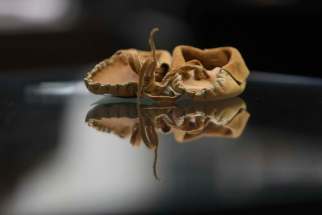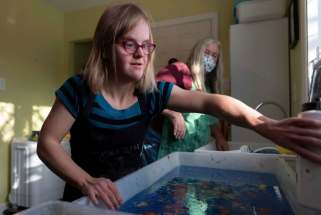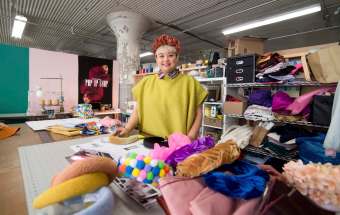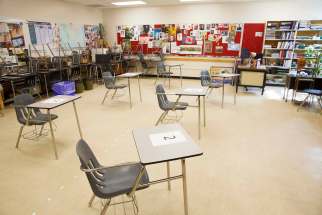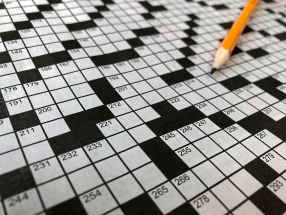Proud paper Matlock artist creates beautiful, delicate, colourful greeting cards and wall hangings she sells at galleries, events and on her website
Read this article for free:
or
Already have an account? Log in here »
To continue reading, please subscribe:
Monthly Digital Subscription
$0 for the first 4 weeks*
- Enjoy unlimited reading on winnipegfreepress.com
- Read the E-Edition, our digital replica newspaper
- Access News Break, our award-winning app
- Play interactive puzzles
*No charge for 4 weeks then price increases to the regular rate of $19.00 plus GST every four weeks. Offer available to new and qualified returning subscribers only. Cancel any time.
Monthly Digital Subscription
$4.75/week*
- Enjoy unlimited reading on winnipegfreepress.com
- Read the E-Edition, our digital replica newspaper
- Access News Break, our award-winning app
- Play interactive puzzles
*Billed as $19 plus GST every four weeks. Cancel any time.
To continue reading, please subscribe:
Add Free Press access to your Brandon Sun subscription for only an additional
$1 for the first 4 weeks*
*Your next subscription payment will increase by $1.00 and you will be charged $16.99 plus GST for four weeks. After four weeks, your payment will increase to $23.99 plus GST every four weeks.
Read unlimited articles for free today:
or
Already have an account? Log in here »
Hey there, time traveller!
This article was published 27/11/2020 (1839 days ago), so information in it may no longer be current.
MATLOCK — Milli Flaig-Hooper, born with Down syndrome and living with autism, is a woman of few words. While her mother Rose Flaig does most of the talking for her, Milli chooses to communicate in a different way, through her art.
Since 2008, Milli, 33, has been the inspiration behind The Paper Fifrildi, an Interlake-based enterprise that turns out greeting cards and frameable wall prints fashioned out of recycled paper, including a new set for the holiday season boasting images of snowflakes, menorahs and Christmas stockings hung by the chimney with care.
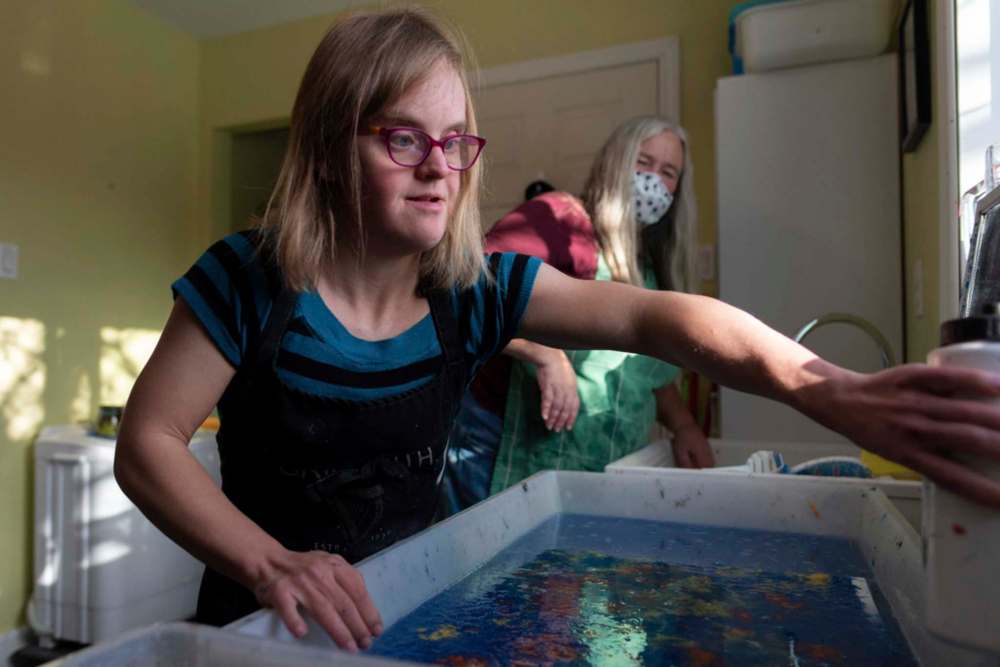
A member of the International Association of Hand Papermakers and Paper Artists, Milli, who works out of her home in Matlock, has had her work displayed at a number of respected locales, including the Wayne Arthur Gallery on Provencher Boulevard and the Gimli Art Club Gallery. She has also been a featured vendor at such well-attended events as the Winnipeg Folk Festival and Scattered Seeds Craft Market. Still, every now and again, a person will spy one of her creations, read the accompanying bio sheet (which mentions her penchant for white wine) and, according to her mom, utter a comment along the lines of it being “pretty good for somebody with Down syndrome.”
“I guess I’ve kind of gotten used to hearing it,” says Rose, seated in the kitchen of her daughter’s two-bedroom house, situated directly next door to her own domicile. “For the life of me though, I don’t know why they can’t just say her stuff is pretty good, period, and leave it at that.”
●●●
Milli attended kindergarten at Laura Secord School before moving to Matlock with her mother at the age of six. Grades 1-8 at Winnipeg Beach School went reasonably well, Rose says, but it was a bit of a different story when her daughter switched over to Gimli High School, about 30 minutes away, for the start of Grade 9. All of a sudden, the “student who absolutely loved school” was miserable. Largely segregated from her classmates because, as Rose puts it, the teachers didn’t seem to know what to do with her, she began developing skin rashes. Also, she would make a beeline to her bedroom after arriving home at 4 p.m., refusing to discuss her day, Rose says.
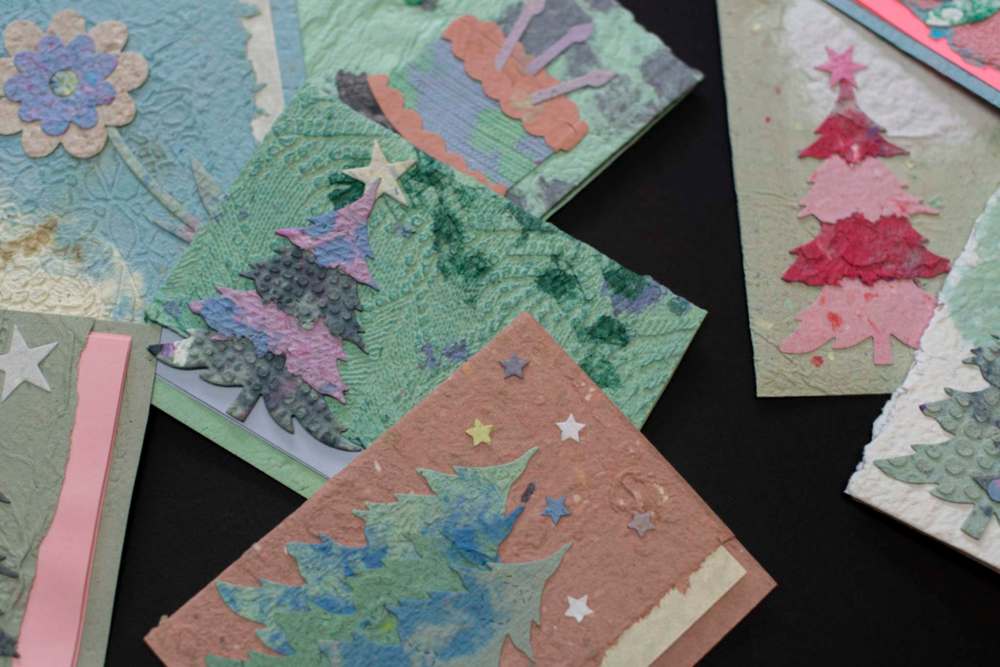
Long an advocate for people living with disabilities, Rose worked with the school’s principal and resource staff to develop a support group comprised of students Milli knew from her days at Winnipeg Beach School. Things turned around and after graduating at the age of 18, she spent three more years commuting back and forth to Gimli to take a future preparedness program. One of her early assignments was to answer a series of questions that revolved around future goals. First of all, she wanted her own house, she wrote. (Mission accomplished.) Second, she hoped to have a cat. (Did we introduce you to her two-year-old tabby, Earl the Pearl?) Finally, she wanted to run a business of her own.
“I remember driving home one day when Milli was 21, feeling completely frustrated. I literally threw it out to the cosmos, yelling, ‘Look, I’ve been asking for your help for a while now; can you give me some kind of clue what Milli can do with her life?’” Rose says.
How’s this for having your prayers answered? When Rose entered the living room some 15 minutes later, Milli and her long-time caregiver, Lori Frejeck, had sheets of paper spread out across a coffee table, and were using a kitchen blender to chop the lot into tiny pieces, almost confetti-like.
“Lori told me they had discovered a children’s instruction book on how to make paper of your own in the back of Milli’s closet and were giving it a shot,” Rose says. “A few days later Lori showed me some of what they’d come up with, saying, ‘You know, Milli really, really enjoys doing this.’”
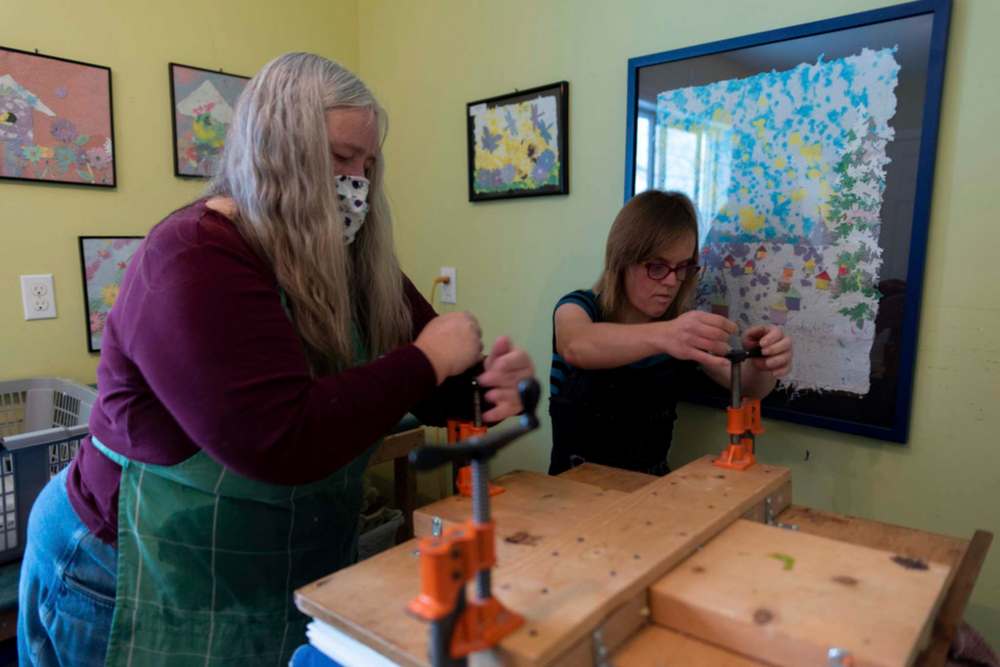
A couple of months later The Paper Fifrildi — fifrildi being the Norse word for butterfly — made its debut at a craft show in Gimli. They’re not Norse; Rose was born in Germany, but The Paper Schmetterling didn’t sound right.
Milli sold so many cards that weekend that she was invited to take part in The Wave tour, a travelling exhibit that annually showcases Interlake artists. She hasn’t slowed down since.
The method Milli uses to produce the paper she turns into marketable ephemera is a multi-step process. We already mentioned a blender; that’s the device she uses to reduce sheets of construction paper, office paper and whatever else she comes across to ribbons, pretty much. Once everything is sliced and diced, she adds water to the blender to create what she and her mom refer to as a slurry. The slurry mixture then gets evenly poured out over a screen — a normal, everyday window screen will do —where it is allowed to dry.
After the various bits bond together — by using different coloured sheets of paper initially, a rainbow effect can be created — the paper is cut to size.
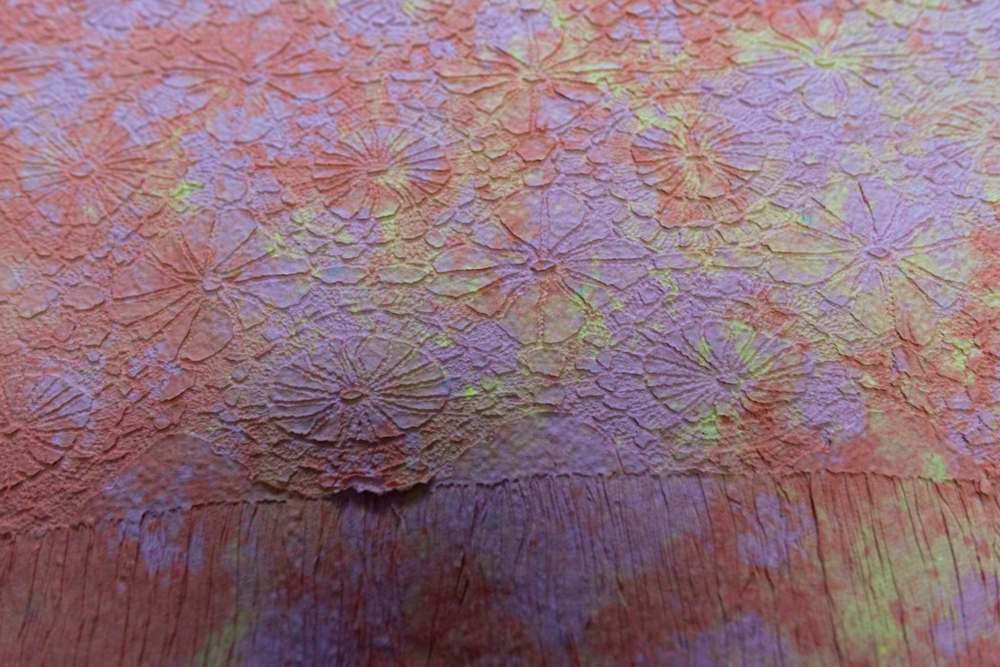
“Each sheet is one-of-a-kind, which means everything she turns out is, too,” Rose says, noting Milli has also begun affixing embellishments such as die-cut images or crossword puzzle pieces to the finished product. As well, she often employs stamps and presses to give her parchment additional character.
“She has two part-time employees who help out, too, and even though Milli doesn’t talk much, if the three of us are gabbing too much while we’re cutting and gluing, Little Miss Queenie over there will motion with her hands as if to say, ‘I’m packaging, people, and I’m sitting here were nothing to package.’”
Normally, Milli’s wares are available for purchase at several retail outlets, including a gift shop run by Inclusion Selkirk and The Scrap Came Back on St. Anne’s Road, which operates under the umbrella of non-profit organization Direct Access in Support of Community Homes Inc., or DASCH. With non-essential businesses in Manitoba currently closed to the public, interested parties will have to call ahead to see if orders can be placed online, or if curbside pickup is available.
Rose nods her head yes when asked if others living with disabilities, physical or cognitive, have been inspired by Milli’s success.

“I think of her as a trailblazer, for sure, and with me along to help get her message across, we have done a few presentations in the past for parents who have children with an intellectual disability, people looking for some direction,” she says. “Obviously, we weren’t able to offer anything like that this year thanks to COVID, but hopefully we can do that again, sometime in the future.”
Oh, remember that slight Milli has to endure from time to time, about how her work is good for a person with Down syndrome? (For the record, she prefers the term, “person having an extra chromosome.”) Well, she and her mother have also heard people remark that what she does might be “a good, little hobby” for other people with disabilities.
“To be perfectly clear; what Milli does isn’t a hobby. It’s art,” Rose says, putting her arm around her daughter’s shoulder. “She is an artist who will more than likely always be an artist, even if it gets to a point when that is no longer her main line of work.”
For more information, go to www.paperfifrildi.com.
david.sanderson@freepress.mb.ca
Dave Sanderson was born in Regina but please, don’t hold that against him.
Our newsroom depends on a growing audience of readers to power our journalism. If you are not a paid reader, please consider becoming a subscriber.
Our newsroom depends on its audience of readers to power our journalism. Thank you for your support.




